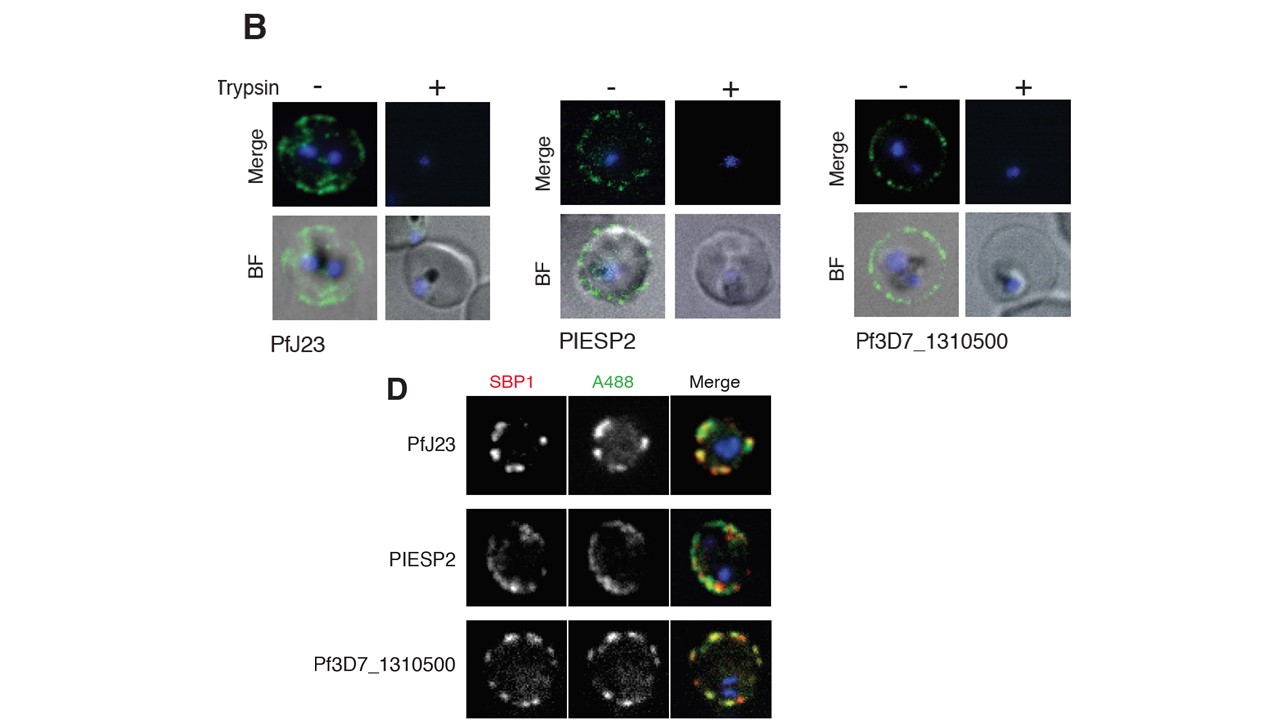B. Surface reactivity of candidate antibodies to purified pRBCs (+/- pretreatment with trypsin/chymotrypsin) was detected by live microscopy. Cells were stained with the nuclear dye Vybrant violet and the surface labeled using AlexaFluor488 goat anti-rat secondary antibody. Antibody signal is only detectable on the pRBC surface without prior trypsin treatment of the cells. All three antibodies showed complete loss of signal on the pRBC surface upon trypsin treatment.
D. Immunofluorescence analysis of the localization of PfJ23, PIESP2 and Pf3D7_1310500 (detected with specific sera) in fixed and permeabilized trophozoite pRBCs shows partial co-localization in the cytosol of pRBC with the Maurer’s cleft resident protein PfSBP1, as well as pRBC surface localization. all three proteins showed partial co-localization with SBP-1, and additional more peripheral labeling near the plasma membrane.
Nilsson Bark SK, Ahmad R, Dantzler K, Lukens AK, De Niz M, Szucs MJ, Jin X,Cotton J, Hoffmann D, Bric-Furlong E, Oomen R, Parrington M, Milner D, Neafsey DE, Carr SA, Wirth DF, Marti M. Quantitative proteomic profiling reveals novel Plasmodium falciparum surface antigens and possible vaccine candidates. Mol Cell Proteomics. 2017 Nov 21. MID: 29162636.
Other associated proteins
| PFID | Formal Annotation |
|---|---|
| PF3D7_0501300 | skeleton-binding protein 1 |
| PF3D7_1033200 | early transcribed membrane protein 10.2 |
| PF3D7_1310500 | er membrane protein complex subunit 7, putative |
